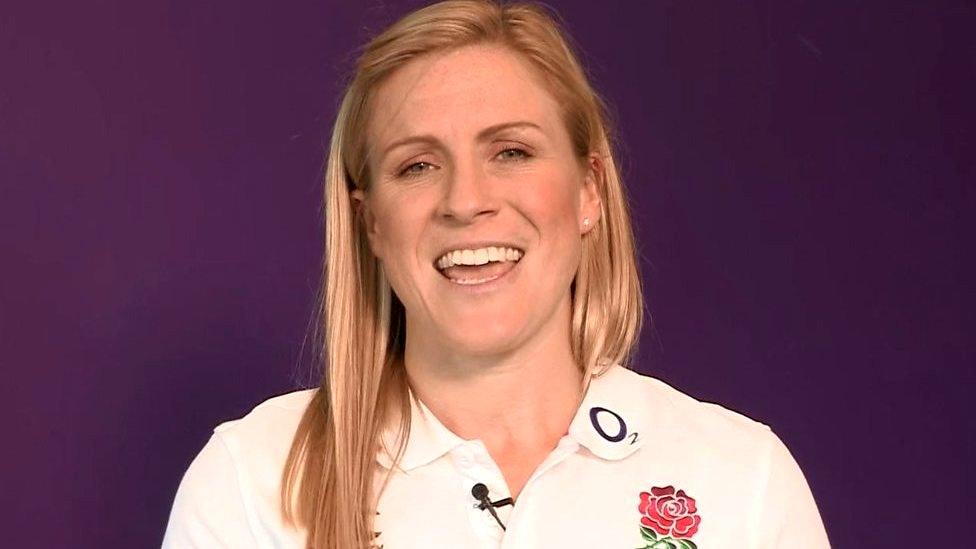Six Nations: Chief executive John Feehan rules out relegation
- Published
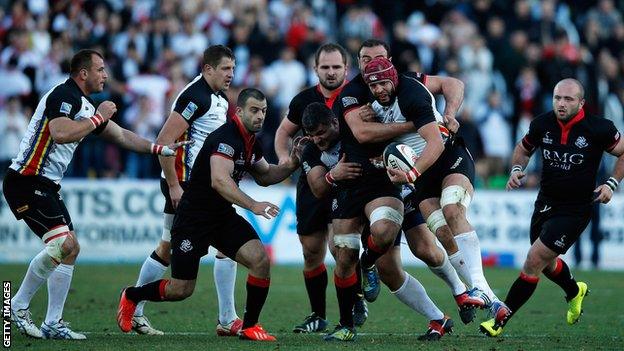
Georgia and Romania in action against each other
Six Nations chief executive John Feehan says relegation from the tournament will not be introduced in the short to medium term.
Georgia and Romania have been pushing to be included in the top tier of European rugby.
Six Nations boss Feehan is keen to keep the status quo and dismissed relegation talk.
"In the short to medium term there is not any genuine likelihood of that happening," said Feehan.
Italy were added to the old Five Nations tournament in 2000 and have propped up the table 11 times in the 17 tournaments since.
But Feehan has dismissed any immediate prospect of relegating the Italians who open their campaign against Wales next Sunday in Rome.
"Some comments are very unfair about Italy," Feehan told BBC Radio Wales.
"We think they have been a good addition to the Championship since they have entered.
"They have improved dramatically but other teams have improved dramatically - it's a relative thing.
"It's not that long ago they beat South Africa in the autumn series so they are capable of beating anyone on their day and worthy participants.
"We are very happy with how the Italians are approaching things.
"There is a long way to go in terms of being competitive to win the title. But on any given day they can beat any of the sides and they have done that, apart from England."
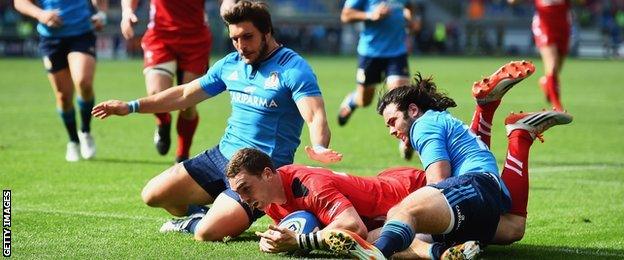
George North scores a try on 'super Saturday' last year
Bonus points
The Six Nations have also employed bonus points for the first time although a side who wins the Grand Slam are guaranteed to win the tournament.
"It is something we have considered for many years but resisted to date," said Feehan.
"If you look at the Six Nations, it is inherently unfair because some teams have three home games and other teams have two home matches in any given year and there is an imbalance.
"That word balance is key and we are looking to see whether the benefits we get on encouraging more tries to be scored is better than any direct imbalance.
"We decided we had to give it a try to see if it works.
"If you look at the the championship two years ago, we ended up with 27 tries on the last day.
"Teams can score tries when they wish to and need to.
"That's what we are trying to encourage."
Listen back to the full John Feehan interview on BBC Radio Wales' Jason Mohammad show on Monday, 30 January.
- Published30 January 2017
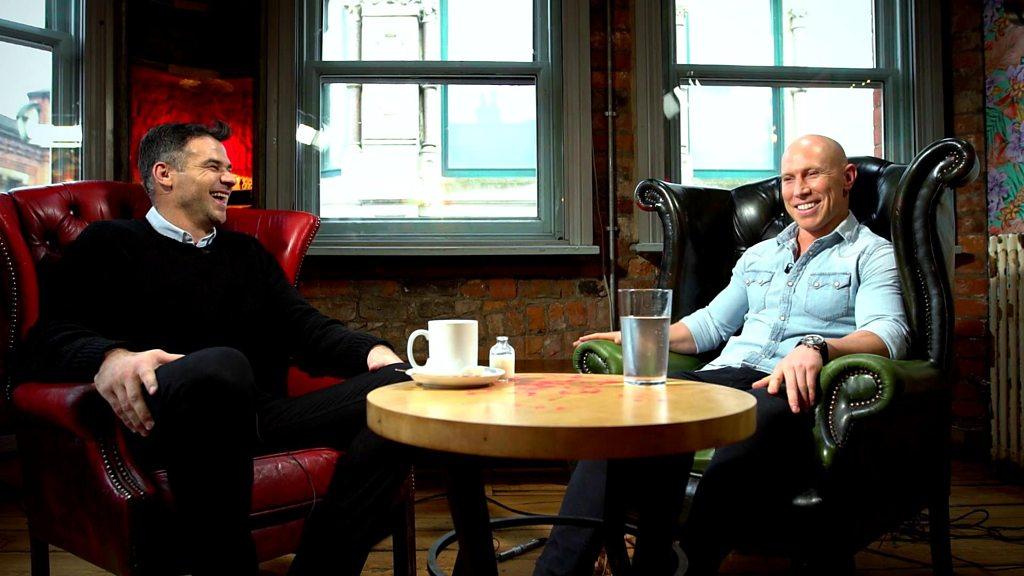
- Published29 January 2017
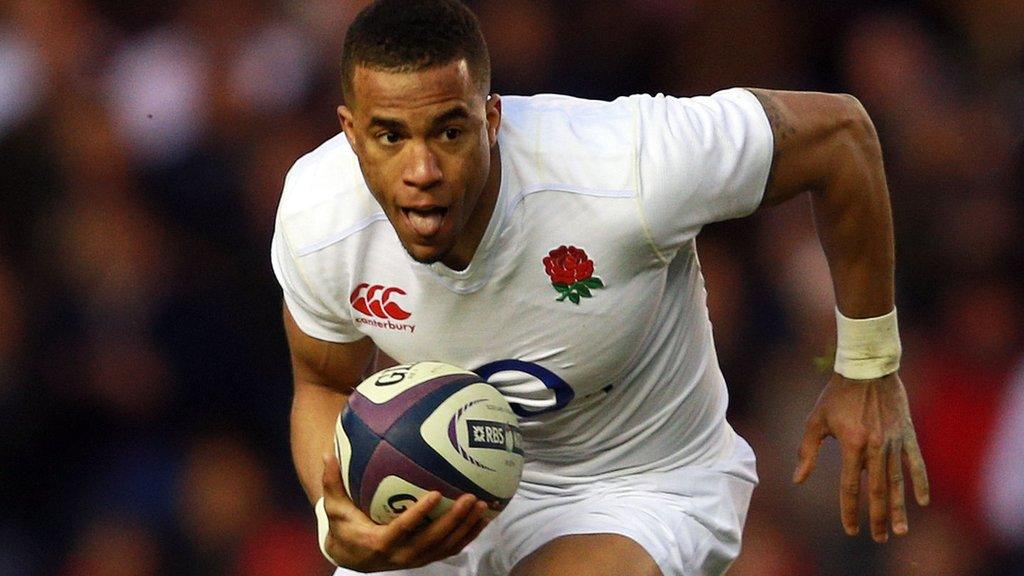
- Published30 January 2017
